Welcome
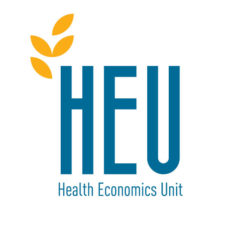
Welcome to this second online issue of HEUnews. This issue illustrates the diversity of ongoing research in HEU: in particular, we highlight projects on air quality improvement and care home closures.
Further illustrating the range of ongoing research, we welcome new HEU staff to the Centre for Economics of Obesity, an NIHR funded initiative led by HEU’s Emma Frew.
We are proud to draw upon our research experience to enhance our teaching and we also take the opportunity in this issue to extend a very warm welcome to our new(ish) student cohort on the MSc in Health Economics and Health Policy.
Have you Heard?
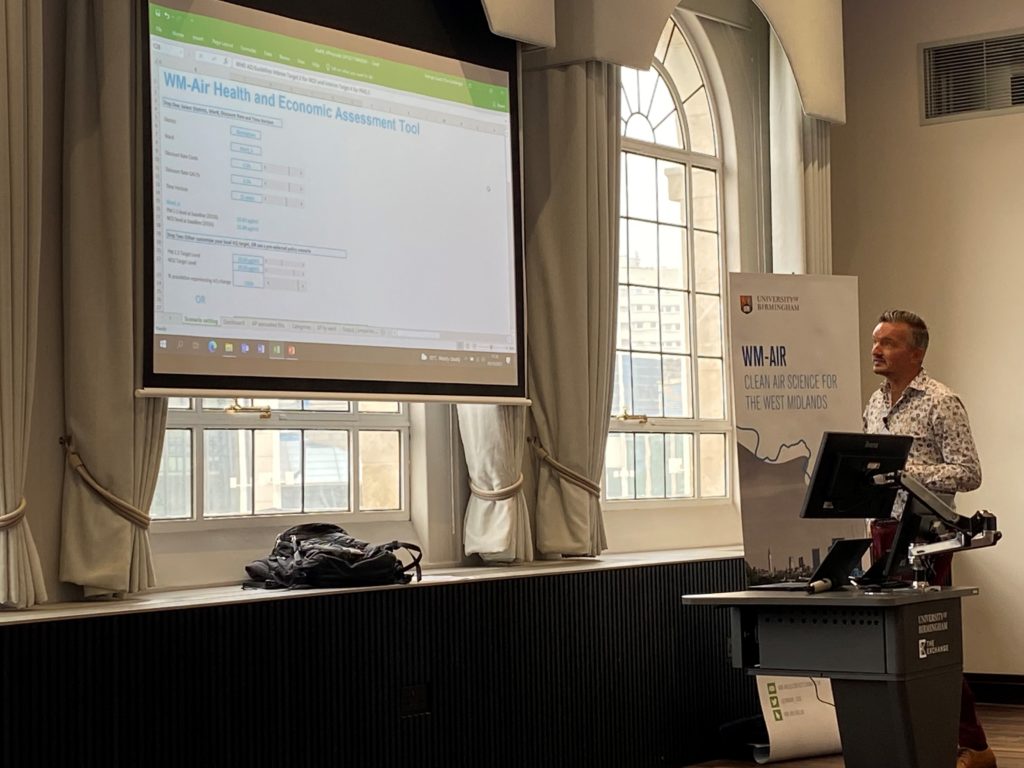
In October, HEU’s James Hall and Sue Jowett attended the annual meeting of the NERC-funded West Midlands Air Quality Improvement Programme (WM-Air), hosted at The Exchange building in Centenary Square, Birmingham. At the meeting James ‘soft-launched’ the Air Quality Life Assessment Tool (AQ-LAT) to the WM-Air local authority, commercial and not-for profit sector partners; generating considerable interest.
The AQ-LAT, built in collaboration with Dr Suzanne Bartington and Professor Neil Thomas (Institute of Applied Health Research, University of Birmingham), will enable end-users to assess health and economic impacts for a range of future air quality scenarios. Users can create a customised scenario, or choose from a list of pre-programmed policies such as vehicle electrification or achieving new WHO air pollution targets. The tool demonstrates the impact of those scenarios on a variety of indicators, such as disease incidence, survival, QALYs, and healthcare and productivity costs.
The AQ-LAT methodology paper will be presented at The Health Economists Study Group meeting in January 2022, and it is anticipated the Tool will be available for users early in 2022.
The grade II listed Exchange building was recently acquired by the University of Birmingham and was home to the ‘The Air We Breathe’ exhibition, exploring the relationships between people, the environment and air quality.
What’s New in HEU?
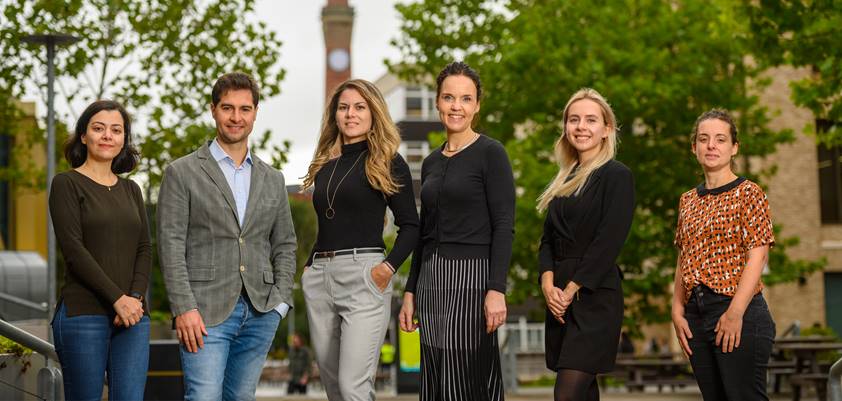
We are delighted to announce the launch of the new Centre for Economics of Obesity. This Centre has been funded by a NIHR Research Professorship, awarded to HEU’s Emma Frew. The aim of the Centre is to measure the economic value of interventions that target the spectrum of factors that affect population obesity. Working in close partnership with local authorities, and external stakeholders, the Centre will develop methods for evaluation and generate evidence that informs policy making within local and national government. The research workstreams cover green/blue space; workplaces; schools; retail and active transport; working across the ‘system’ that determines population obesity.
Introducing the Centre for Economics of Obesity Research Team:
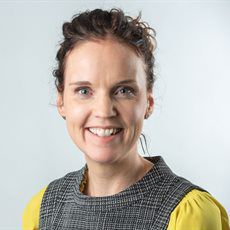
Emma was awarded a NIHR Research Professorship in 2020 and is delighted to announce the new Centre research team that will deliver on the six workstreams that make up the research programme. The team have a diverse range of research experience enabling them to work together and learn from each other to deliver on the work programme. A crucial element of the Centre is the public and stakeholder advisory group with whom the team will regularly engage throughout the whole programme of work.
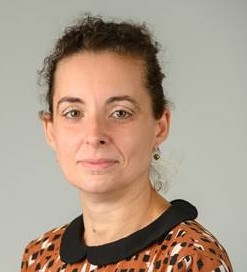
Hanna Wride is the Research Administrator and provides highly valued support to Emma and the wider research team. Hanna previously provided administration for the Social Work Programmes in the College of Social Sciences and also gained experience on secondment in the School of Geography and Environmental Sciences, supporting research into air pollution in East Africa.
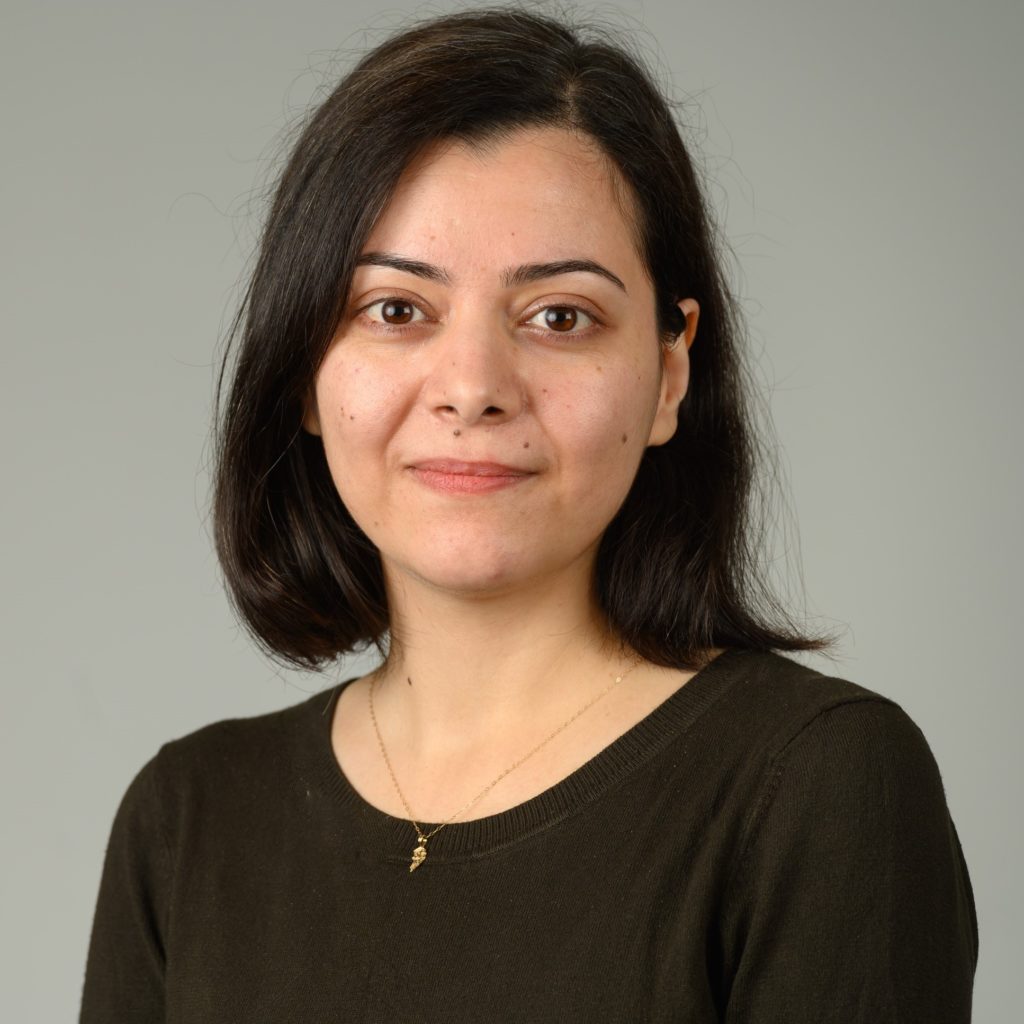
Hamideh Mohtashami Borzadaran joined the Centre from the Department of Economics at the University of Birmingham, having previously worked in behavioural economics using experimental methods. Hamideh will be partnering with a large supermarket to tackle the determinants of obesity within a retail context, specifically exploring the impact of changing the value and design of food vouchers.
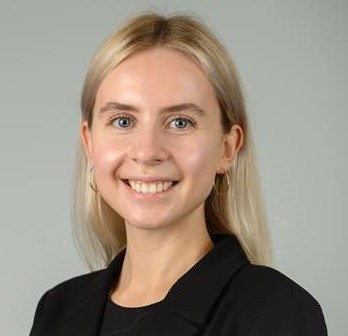
Irina Pokhilenko joined the Centre in October 2021 from Maastricht University in the Netherlands. She will focus on the schools workstream and look at the impact of school food policies on children’s health and quality of life outcomes. Irina brings with her a passion for researching the economic implications of interventions in non-health settings and an understanding of different methodologies for capturing resource use.

Nafsika Afentou joined the Centre for Economics of Obesity in March 2021 and has been part of the HEU as a Research Associate since 2018. Nafsika will be working with Emma and Paolo on Workstream 1 that aims to generate evidence on the cost-effectiveness of interventions related to blue space infrastructure to understand the costs and health impact upon local populations, as well as to explore equity considerations in the distribution of outcomes. This 4-year project partners with The Canal & River Trust and will form the topic for Nafsika’s PhD.
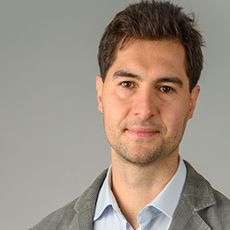
Paolo Candio joined the Centre in July 2021 from the Health Economics Research Centre, University of Oxford. He will be leading the Active Travel and Economic Modelling workstreams and will assess the health and wider socio-economic impacts of selected population-level policies on local populations and local authority budgets.

Research Focus: Care Home Closures
Some 400,000 people are supported in care homes 24 hours a day, 365 days a year. The care market is increasingly fragile and care homes can close due to a range of factors, including financial and care failings. Care home closures are likely to have a detrimental affect on the well-being of older residents, as well as their family and care staff.
HEU’s Tracy Roberts, Philip Kinghorn and Ayesha Iqbal are currently contributing health economics expertise to an NIHR funded project analysing the impact of care home closures. The three-year project is led by Professor Jon Glasby from the Department of Social Work and Social Care (University of Birmingham). The project will determine how to efficiently manage closures so that negative consequences for older people and families are minimised, and identify important lessons for local authorities as they prepare for future closures.
The health economics component of the project aims to explore the costs and consequences of care home closures for older people, family members, care home staff and local authorities in order to create a model-based economic evaluation that compares the costs and consequences of home closures from different perspectives.

Health Economics Capacity Building
A warm HEU welcome to all our new students who have started on the PGDip/MSc Health Economics and Health Policy this semester. As well as the UK, students have joined us in Birmingham from China, Egypt, India, Kuwait, Nigeria and Syria. The students have already attended several modules on campus, being introduced to key concepts in health economics and economic evaluation, as well as having the opportunity to meet their peers and HEU staff. We have already had lots of engaging discussions. We wish all the students the best of luck preparing for their first assessments this month.
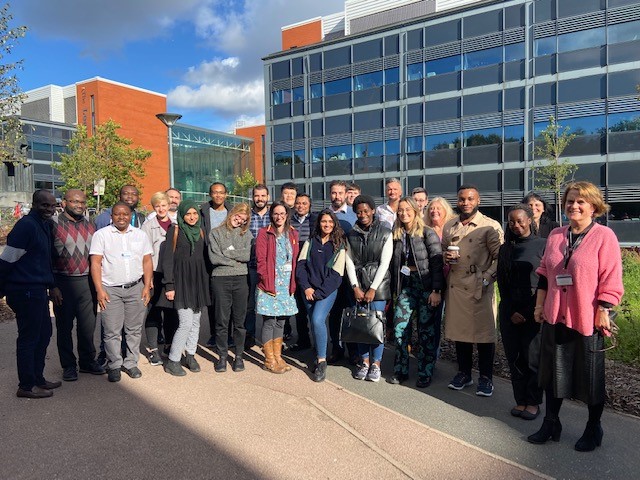
We would like to take this opportunity to acknowledge and thank our student reps, who undertake a vital role, they are: Matthew Napier (Full-Time MSc), Steve Nwokeocha (Full-Time MSc) and Patrick Uriot (Part-Time, Year 2).
Last year’s MSc cohort will be donning their caps and gowns to celebrate their achievement at the on campus graduation ceremony in December.
Selected, recent publications
Al-Janabi H, Wittenberg E, Donaldson C, Brouwer W. The relative value of carer and patient quality of life: A person trade-off (PTO) study. Social Science & Medicine (2022). DOI: 10.1016/j.socscimed.2021.114556
Becchetti L, Candio P, Salustri F. Vaccine uptake and constrained decision making: The case of Covid-19. DOI:10.1016/j.socscimed.2021.114410. Social Science & Medicine (2021)
Candio P, Pouwels KB, Meads D, Hill AJ, Bojke L and Williams C. Modelling decay in effectiveness for evaluation of behaviour change interventions: a tutorial for public health economists. Accepted. European Journal of Health Economics
Dhanji N, Brouwer W, Donaldson C, Wittenberg E, Al-Janabi H. Estimating an exchange-rate between care-related and health-related quality of life outcomes for economic evaluation: An application of the wellbeing valuation method. Health Economics (2021). DOI: 10.1002/hec.4411
Hall J, Turner AM, Dretzke J, Moore D, Jowett S. Cost-effectiveness of domiciliary non-invasive ventilation in patients with chronic obstructive pulmonary disease. Thorax (2021). DOI: 10.1136/thoraxjnl-2021-217463
Kachapila M, Ademuyiwa AO, Biccard BM, Ghosh DN, Glasbey J, Monahan M, Moore R, Morton DG, Oppong R, Pearse R, Roberts TE; NIHR Global Health Research Unit on Global Surgery; ASOS Investigators; STARSurg Collaborative. Preliminary model assessing the cost-effectiveness of preoperative chlorhexidine mouthwash at reducing postoperative pneumonia among abdominal surgery patients in South Africa. PLoS One (2021). DOI: 10.1371/journal.pone.0254698
Mitchell PM, Husbands S, Byford S, Kinghorn P, Bailey C, Peters TJ, Coast J. Challenges in developing capability measures for children and young people for use in the economic evaluation of health and care interventions. Health Economics (2021). DOI: 10.1002/hec.4363
